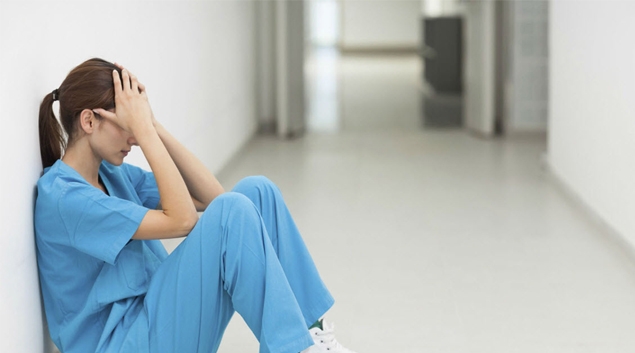New research, published online Monday in JAMA Network Open, has found that a significant number of health workers who are treating coronavirus patients have complaints of depression, anxiety, and insomnia.
Researchers conducted a survey on over 1200 health workers in China, of which 50 percent reported mild depression, 34 percent reported insomnia, and 14 percent of doctors and 16 percent of nurses reported moderate to severe depression.
Female health workers were found to be more depressed and anxious.
Lead researcher Jianbo Lai from Zhejiang University School of Medicine, China, wrote, “Together, our findings present concerns about the psychological well-being of physicians and nurses involved in the acute COVID-19 outbreak.”
The survey was conducted from January 29 to February 3, a period when China’s total confirmed cases of coronavirus topped 10,000.
The researchers also found that 45 percent of the participants reported anxiety and 72 percent reported overall psychological distress.
“Protecting healthcare workers is an important component of public health measures for addressing the COVID-19 epidemic,” the investigators wrote.
“Special interventions to promote mental well-being in health care workers exposed to COVID-19 need to be immediately implemented, with women, nurses, and frontline workers requiring particular attention,” they added.
Associate editor of JAMA Network Open Dr. Roy Perlis said, “The rates of anxiety and depression revealed by the survey are ‘striking.’”
He noted that while the “peak of the COVID-19 epidemic remains to be seen, it will ultimately subside.” However, he said, “The results also provide a reminder of the toll that will likely linger: the consequences of chronic stress, including major depression and anxiety disorders.”
Dr. Perlis added, “Just as the world has joined efforts to manage COVID-19 infection, it will be critical not to neglect the mental health consequences of the fight against the epidemic.”
Psychologist Jacqueline Bullis told Medscape Medical News there are “actionable and feasible” things health workers can do to curb some of the stress while handling coronavirus patients.
“It’s important to acknowledge that it is normal to be feeling anxious and worried right now,” Bullis continued. “In the case of coronavirus, some amount of anxiety is helpful in reminding us to take precautions and protect ourselves.”























